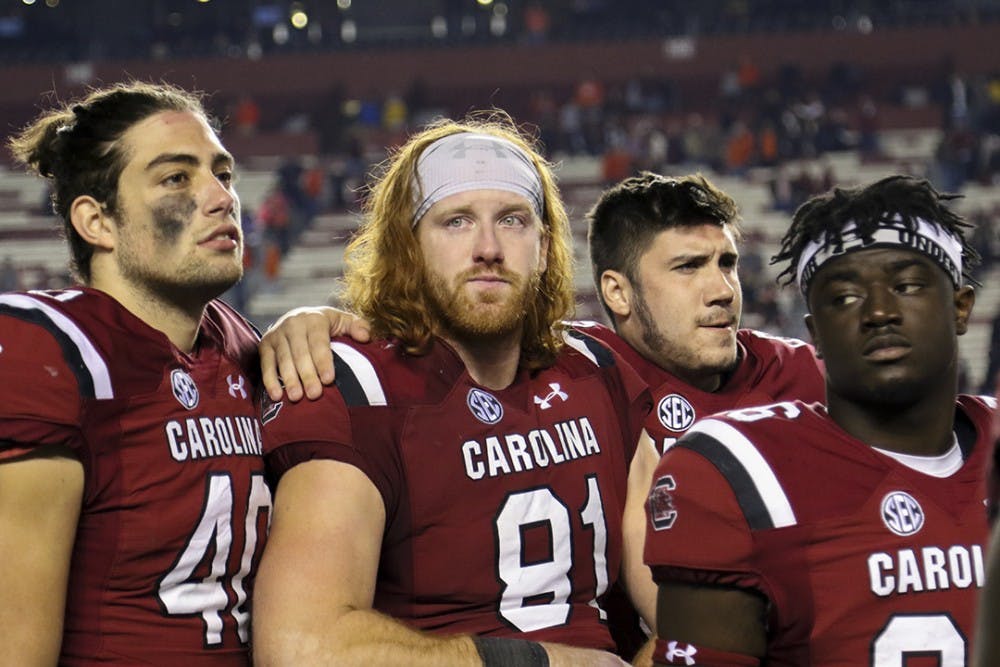Baltimore Ravens tight end Hayden Hurst opened up last week about his depression and how it led to his suicide attempt four years ago while he was a student at South Carolina.
During Hurst's junior year as a Gamecock, he played all 13 games and caught 44 passes for over 559 yards, eventually leading to his unanimous selection to the 2017 All-SEC football team.
Hurst told First Coast News in an interview that he woke up in the hospital on the night he attempted suicide.
"I didn't know what happened. I had to have a friend fill me in. Apparently, I had been drinking and went into my apartment and cut my wrist. My friend found me in a puddle of blood. He called 911," Hurst said.
Hurst admitted to drinking heavily at a bar in Columbia, ingesting pills and inevitably blacking out, ending up on the steps of his apartment complex. When he finally woke up, he discovered that he was chained to a hospital bed. Hurst was then confined to the hospital under a 72-hour period of observation.
Hurst describes this feeling to ESPN as his “come to Jesus moment.”
Originally a star baseball player from The Bolles School in Jacksonville, Florida, Hurst was drafted by the Pittsburgh Pirates in 2013 and was looked at as a future Major League star. However, Hurst’s battle with depression and anxiety led to the deterioration of his performance.
“I didn’t know what the hell was going on,” Hurst said in an interview with Florida Headline News Radio (FHN). “I started getting sweaty palms, wanting to throw up, didn’t want to be on the field. Pretty much panic attacks.”
He became lost on the pitcher’s mound, and his professional career as a pitcher lasted all of one-third of one inning, walking five batters.
It was during these nights as a struggling pitcher that Hurst started drinking heavily and mixing drugs with the alcohol. He would often take Xanax and whiskey together to stop the pain of being what he considered a failure.
“The goal was to just get blacked out,” Hurst told ESPN in an interview.
These panic attacks led Hurst to quit baseball and to walk on to the football team at the University of South Carolina. Unfortunately, he later came to realize that this was not the end of his depression and anxiety, and it led to him waking up in that South Carolina hospital, cuffed to the bed.
It was at that moment that Hurst figured out that he needed to ask for help, and he got it.
"If I had a gun that night, I probably would have killed myself," Hurst said in an interview with Times-Union. "I'm glad I only had a knife. It'd be a totally different story."
The Anxiety and Depression Association of America says that “anxiety disorders are the most common mental illness in the U.S. ... [affecting] 18.1% of the population.” They are also “highly treatable, yet only 36.9% of those suffering receive treatment.”
Sarah Noll, South Carolina's sports wellness coordinator for the athletics department, discussed her role and working with students and staff with mental illness concerns.
"If coaches or support staff feel like a student-athlete needs individual counseling or medications, it will be funneled through me, where I will be making assessments, providing referrals, individual therapy, and educational seminars for groups to get them where they need to be," Noll said.
Those in need of help can call 803-777-5223, and if you have a concern about a friend or a classmate, reach out to the Student Health Services.
The Suicide National Hotline is 1-800-273-8255.


